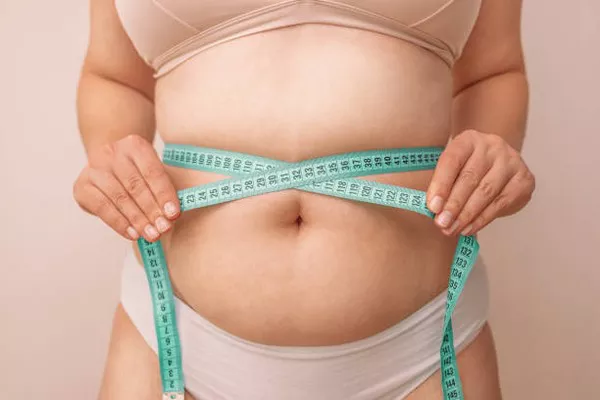Losing pregnancy weight can be a challenging journey for many new mothers. It’s important to adopt a diet that not only helps in shedding those extra pounds but also supports your overall health and well-being. This article provides comprehensive guidance on the best diet to lose pregnancy weight, including specific dietary recommendations, tips for meal planning, and essential nutrients to focus on.
Understanding Postpartum Weight Loss
The Importance of a Balanced Diet
A balanced diet is crucial for postpartum weight loss. It ensures that you get all the essential nutrients needed for recovery and energy.
How Long Does It Take to Lose Pregnancy Weight?
The timeline for losing pregnancy weight varies. On average, it can take several months to a year to return to your pre-pregnancy weight.
Key Principles of a Postpartum Diet
Focus on Nutrient-Dense Foods
Nutrient-dense foods provide essential vitamins, minerals, and other nutrients without excessive calories. These foods are crucial for postpartum recovery and weight loss.
Maintain a Caloric Deficit
To lose weight, you need to consume fewer calories than you burn. However, it’s important not to reduce calories too drastically, especially if you are breastfeeding.
Stay Hydrated
Drinking plenty of water is vital for weight loss and overall health. It helps maintain hydration, supports metabolism, and can reduce feelings of hunger.
Essential Nutrients for Postpartum Weight Loss
Protein
Protein is essential for muscle repair and growth. It also helps you feel full, reducing the likelihood of overeating.
Healthy Fats
Incorporate healthy fats from sources like avocados, nuts, seeds, and olive oil. These fats are important for hormone regulation and overall health.
Fiber
Fiber aids digestion and helps keep you full longer. Include plenty of fruits, vegetables, whole grains, and legumes in your diet.
Vitamins and Minerals
Ensure you get adequate vitamins and minerals, especially iron, calcium, vitamin D, and omega-3 fatty acids.
Sample Postpartum Diet Plan
Breakfast Ideas
Oatmeal with Berries and Nuts: A fiber-rich start to your day.
Greek Yogurt with Honey and Almonds: High in protein and healthy fats.
Smoothie with Spinach, Banana, and Protein Powder: Nutrient-packed and convenient.
Lunch Options
Grilled Chicken Salad with Mixed Greens and Quinoa: Protein and fiber-rich.
Vegetable Stir-fry with Tofu and Brown Rice: A balanced vegetarian option.
Whole Wheat Wrap with Turkey, Avocado, and Vegetables: Easy to prepare and nutritious.
Dinner Suggestions
Baked Salmon with Sweet Potatoes and Asparagus: High in omega-3 and vitamins.
Lentil Soup with Whole Grain Bread: Fiber and protein-rich.
Chicken and Vegetable Skewers with Couscous: A balanced and flavorful meal.
Healthy Snacks
Apple Slices with Peanut Butter: Protein and fiber.
Carrot Sticks with Hummus: Low-calorie and nutritious.
Greek Yogurt with Fresh Fruit: Satisfying and healthy.
Tips for Successful Postpartum Weight Loss
Meal Planning and Preparation
Planning and preparing meals in advance can help you stick to a healthy diet. Consider batch cooking and using a weekly meal planner.
Mindful Eating
Practice mindful eating by paying attention to hunger and fullness cues. Avoid distractions while eating, and take time to enjoy your meals.
Physical Activity
Incorporate physical activity into your routine. Start with gentle exercises like walking and gradually increase intensity.
Getting Support
Seek support from family, friends, or a healthcare provider. Joining a postpartum support group can also be beneficial.
Managing Stress
High stress levels can hinder weight loss. Practice stress management techniques like deep breathing, meditation, or yoga.
See Also: When Is The Best Time To Lose Weight After Pregnancy
Foods to Avoid
Processed Foods
Avoid processed foods high in sugar, salt, and unhealthy fats. These foods can contribute to weight gain and health issues.
Sugary Beverages
Sugary drinks add empty calories to your diet. Opt for water, herbal teas, or diluted fruit juices instead.
High-Calorie Snacks
Limit high-calorie snacks like chips, cookies, and candies. Choose healthier snack options.
Special Considerations for Breastfeeding Mothers
Increased Caloric Needs
Breastfeeding mothers require additional calories. Choose nutrient-dense foods to meet these needs without excessive weight gain.
Hydration
Stay well-hydrated to support milk production. Drink water regularly throughout the day.
Nutrient-Rich Foods
Focus on foods rich in calcium, iron, and omega-3 fatty acids to support both your health and your baby’s development.
Conclusion
Losing pregnancy weight requires a balanced approach that combines healthy eating, physical activity, and self-care. By focusing on nutrient-dense foods, staying hydrated, and incorporating regular exercise, you can achieve your weight loss goals while maintaining your overall health and well-being. Remember to be patient with yourself and seek support when needed.


